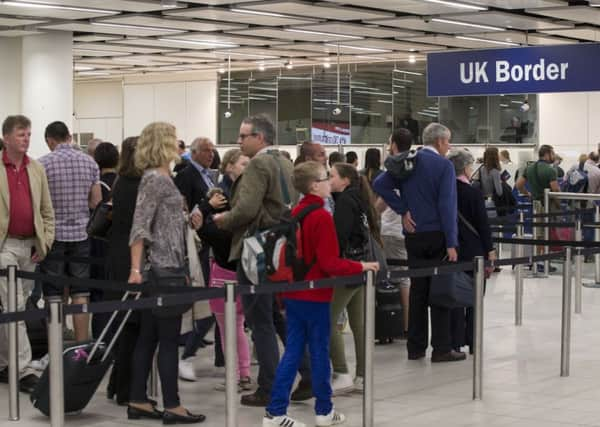Terrorists '˜evade overstretched UK Border Force'


The Adam Smith Institute report said that the Border Force was in “complete disarray” after years of neglect, with potentially 4,000 high-risk flights not met by staff each year.
The Home Office said the figure was “inaccurate and highly misleading”.
Advertisement
Hide AdAdvertisement
Hide AdThe think tank highlighted the case of Siddhartha Dhar, who disappeared in September 2014 while on police bail.
Despite a travel ban, he was able to reach Syria, where he has appeared in propaganda videos for so-called Islamic State.
The think tank said the Border Force lacked up-to-date equipment, allowing travellers to enter and leave the country unchecked. In a report published today, it said that despite the force claiming to process 99 per cent of high-risk flights, thousands are not met by agents, risk assessed or remotely checked against a security database.
Sam Bowman, executive director of the Adam Smith Institute, said: “A successful Border Force needs to do two things: keep people out of the country who should not be allowed in, and do so without causing unnecessary disruption to other passengers.
“In both these respects the Border Force is not succeeding. Its security systems are out of date, over-stretched and failing to cover all passengers adequately.”
A Home Office spokeswoman said the figure for missed flights was “speculative”.
She said: “Border Force carries out detailed risk assessments and our officers physically meet any flight considered to be high-risk.
“We constantly review our approach so that we are keeping up with the ever-changing methods used by criminals looking to bring harm to communities in the UK.”